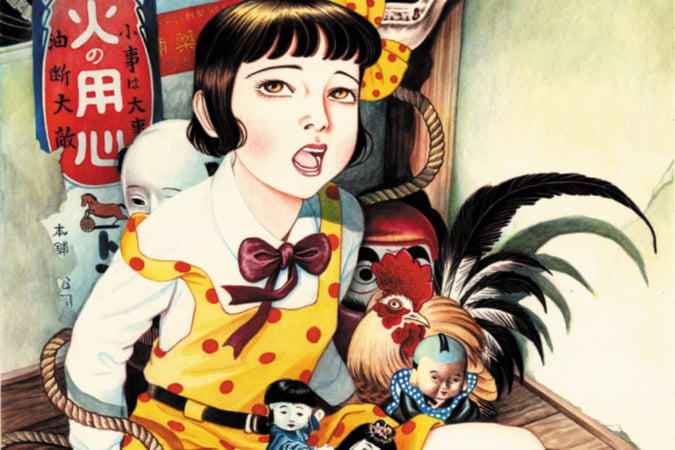‘Junk Head’, Humanity in Danger
In this stop-motion animated film by Takahide Hori, humans are forced to confront clones in order to avoid becoming extinct.
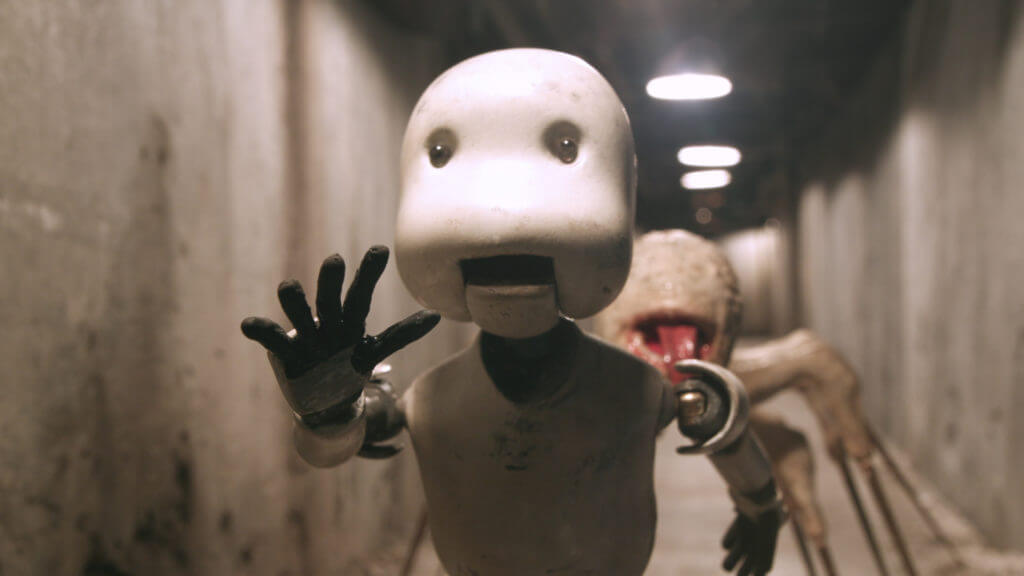
© UFO Distribution
In the future, humans have abandoned natural reproduction, done everything to ensure their immortality and delegated their thankless and most dangerous tasks to clones, known as Mulligans. Until then, everything is fine.
However, tired of their subordinate status, the Mulligans, who were somewhat docile, decide to rebel and leave their positions. A complete break with humans follows when the Mulligans decide to go and settle in an underground world.
The odyssey of a film and a director
Thus, the humans are forced to rediscover their everyday routine, which had previously been entrusted to the clones. Very quickly, however, things spiral out of control: they realise that while their life expectancy has increased significantly following multiple genetic modifications, they are no longer capable of reproducing, therefore endangering the survival of the species.
As a result, they set out on exploratory missions, through which they discover that the Mulligans, on the other hand, seem to have become fertile. Thus, the humans decide to send one of their own on a fact-finding assignment in the underground in order to guarantee the future of humanity. However, this underground world seems more like a poison than an antidote…
Takahide Hori‘s Junk Head is quite a tour de force. Prior to making this film, the director had had no experience in animated cinema. Junk Head initially appeared in the form of a short film, released in 2013. Galvanised by its critical acclaim, Takahide Hori decided to transform it into a feature film. He accomplished this task alone, over a period of seven years.
Creating characters, capturing shots, editing, directing, music, inventing a language for his horrific creatures… Takahide Hori achieved all of this single-handedly. Among his influences, the director lists Kin-Dza-Dza, a Georgian science-fiction film by Georgiy Daneliya and Ridley Scott’s Alien.
Junk Head (2021), an animated film directed by Takahide Hori, was screened at the 2021 Fantasia Festival.

© UFO Distribution
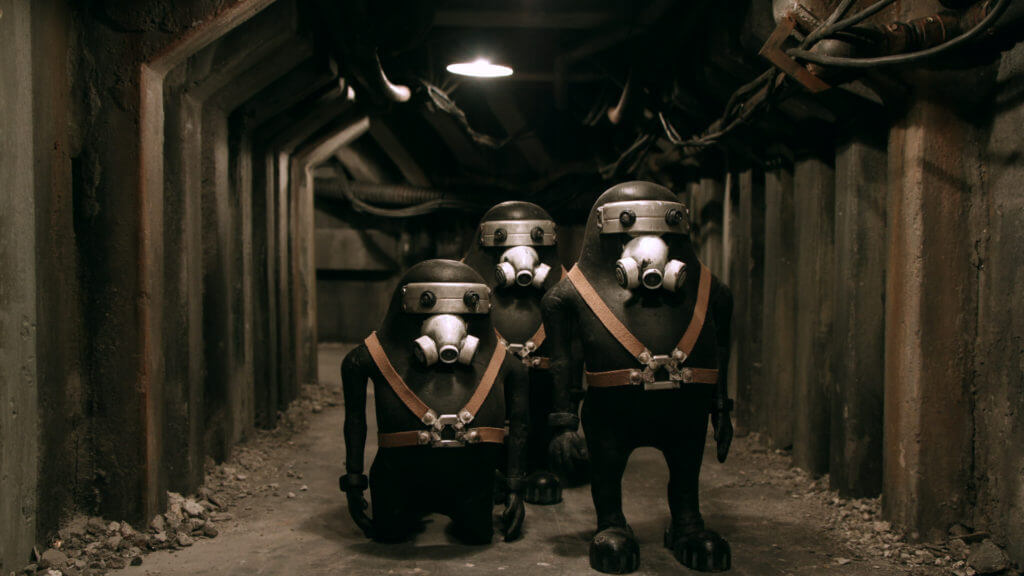
© UFO Distribution
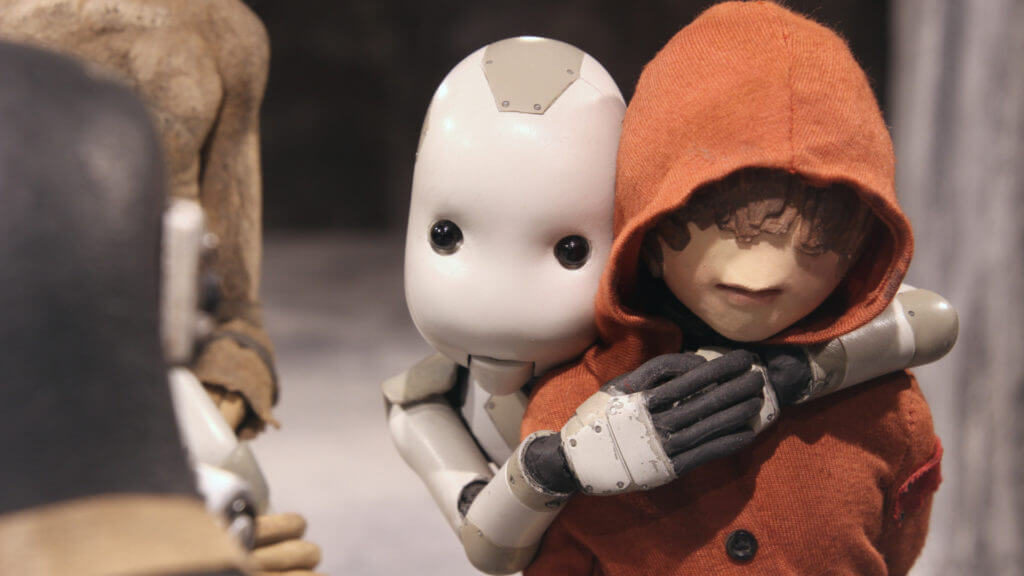
© UFO Distribution
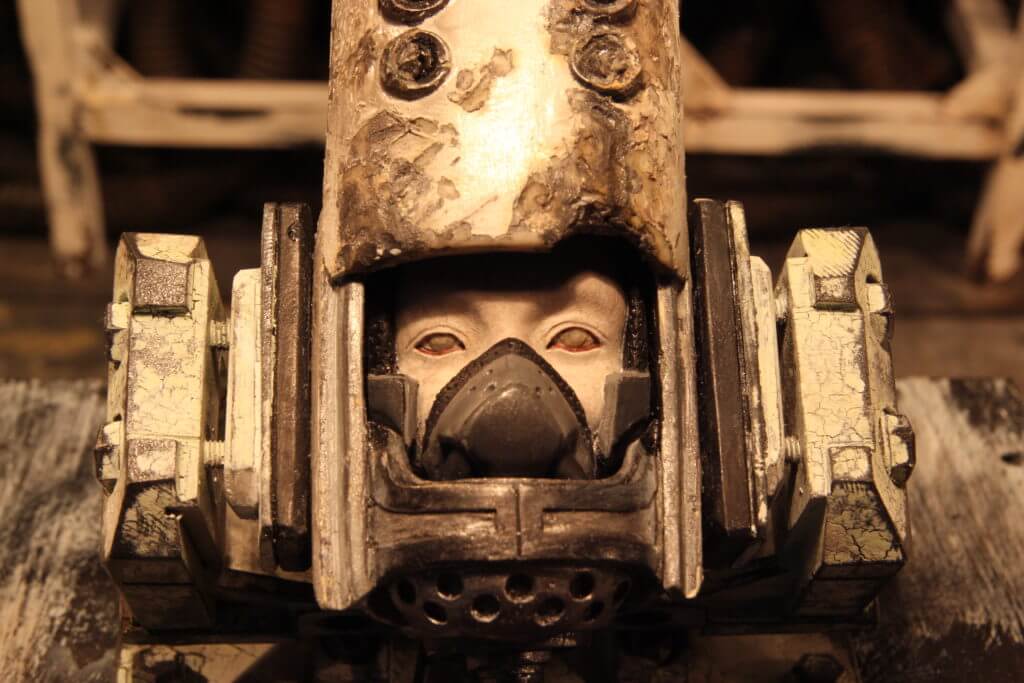
© UFO Distribution
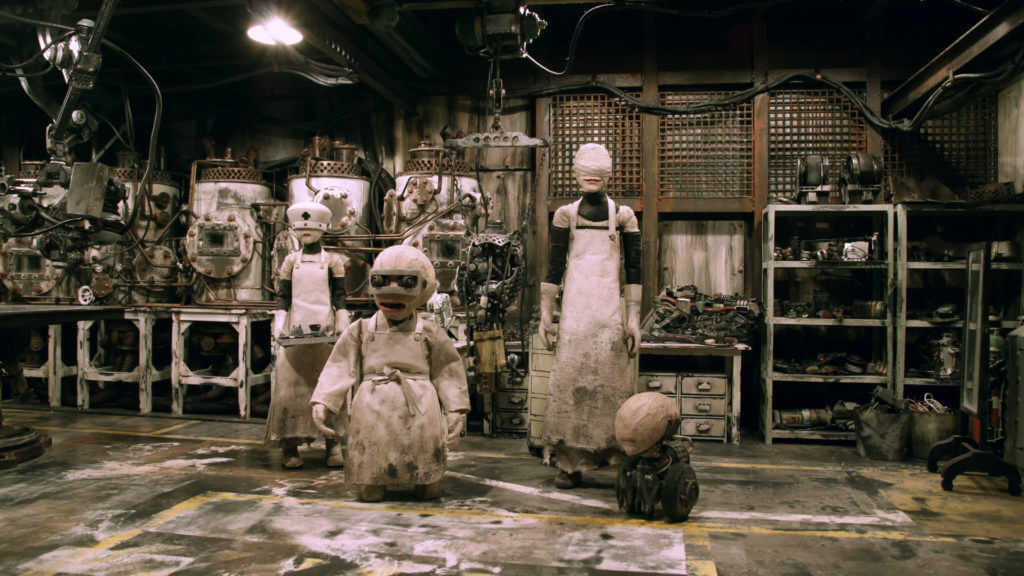
© UFO Distribution
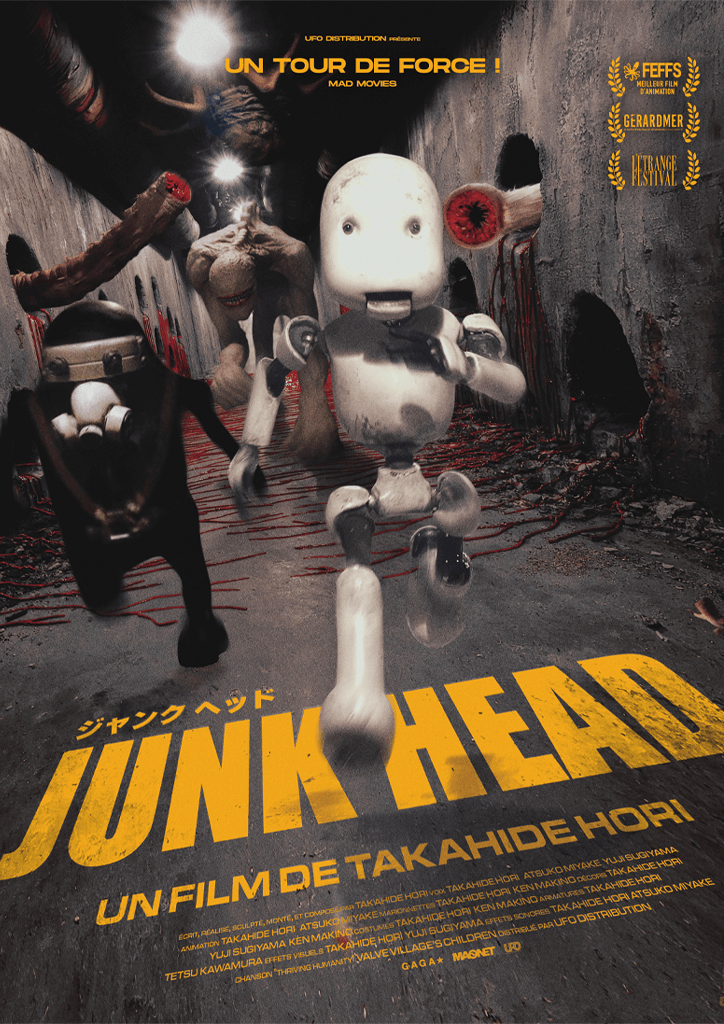
© UFO Distribution
TRENDING
-
Hiroshi Nagai's Sun-Drenched Pop Paintings, an Ode to California
Through his colourful pieces, the painter transports viewers to the west coast of America as it was in the 1950s.

-
A Craft Practice Rooted in Okinawa’s Nature and Everyday Landscapes
Ai and Hiroyuki Tokeshi work with Okinawan wood, an exacting material, drawing on a local tradition of woodworking and lacquerware.

-
The Tattoos that Marked the Criminals of the Edo Period
Traditional tattoos were strong signifiers; murderers had head tattoos, while theft might result in an arm tattoo.

-
‘Seeing People My Age or Younger Succeed Makes Me Uneasy’
In ‘A Non-Conformist’s Guide to Surviving Society’, author Satoshi Ogawa shares his strategies for navigating everyday life.

-
‘Shojo Tsubaki’, A Freakshow
Underground manga artist Suehiro Maruo’s infamous masterpiece canonised a historical fascination towards the erotic-grotesque genre.





